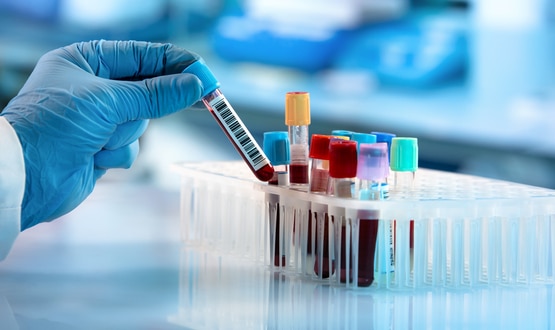EIT Health helps accelerate AI bipolar diagnostic test launch
- 30 March 2023

The launch of a new pioneering bipolar diagnostic test from the EDIT-B Consortium that uses artificial intelligence has been accelerated, thanks to the support of EIT Health.
The new blood diagnostic test uses RNA editing biomarkers and artificial intelligence (AI) to differentiate bipolar disorder from depression. Originally projected to launch in 2025, the launch date has been brought forward two years, to 2023.
Part of the European Institute of Innovation and Technology (EIT), EIT Health’s network facilitates a robust consortium for the EDIT-B project and helps to fast-track innovation across Europe.
Jean-Marc Bourez, CEO of EIT Health, said: “The EDIT-B consortium, led by our partner ALCEDIAG (Alcen Group), is directly addressing the challenge of improving bipolar disorder diagnosis. This not only supports EIT Health’s main mission of helping citizens live healthier and longer lives but also emphasises the importance of mental health as a crucial aspect of care management and community wellbeing.”
EIT Health was able to offer support, strategic guidance and assist with navigating recent regulatory changes.
EDIT-B has already undergone clinical validation in two studies on independent cohorts, and is CE IVD-marked, boasting sensitivity and specificity rates above 80%. The test will be made available to healthcare professionals and their patients across Europe, helping practitioners make quicker diagnoses and improving patient care and management.
The average diagnostic delay for bipolar disorder is 8-10 years, due to confusion with symptoms of depression. EDIT-B aims to dramatically reduce this diagnostic delay.
The EDIT-B Consortium is backed by a €5.2 million budget and experts from ALCEDIAG, Alcen, Capital Region of Denmark, Fundació Clinic per la Recerca Biomèdica, Fundació Sant Joan de Déu, GHU Paris Psychiatrie & Neurosciences, Hospital Clínic de Barcelona, Parc Sanitari Sant Joan de Déu, ProductLife Group, and SYNLAB.
Alexandra Prieux, CEO of ALCEDIAG, said: “EIT Health’s role in EDIT-B’s success cannot be overstated. They not only shared our vision for innovation but also provided unwavering support. The EIT Health network’s strength enabled us to form a robust consortium with industrial partners like SYNLAB and clinicians, whose collaboration extended beyond the project’s initial scope to deliver this innovation to European citizens.”
AI is increasingly making waves within healthcare diagnostics. Recently PainChek’s AI software was integrated to care management platform Log my Care to deliver pain assessment for individuals who may not be able to verbalise their discomfort.




